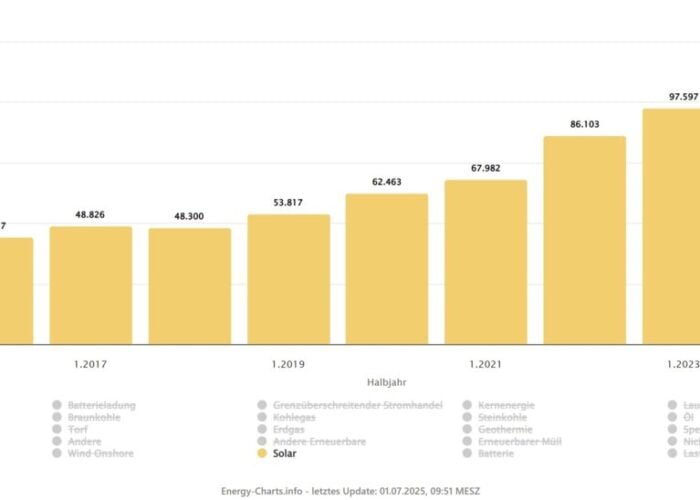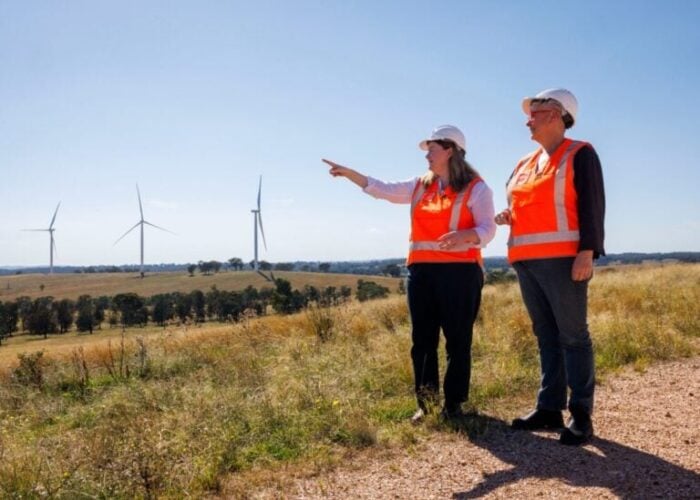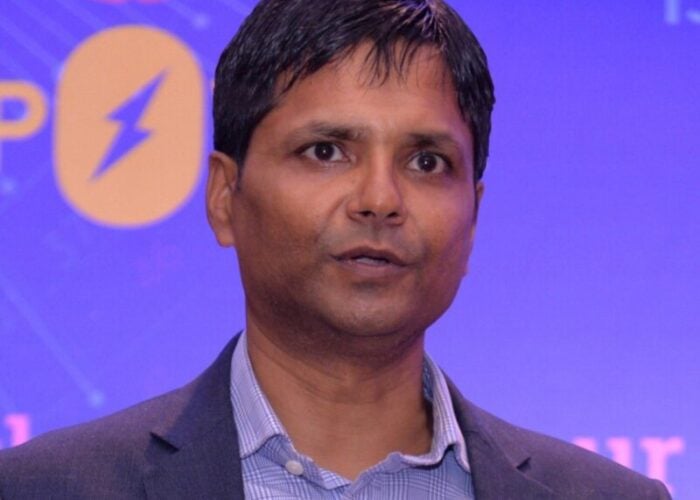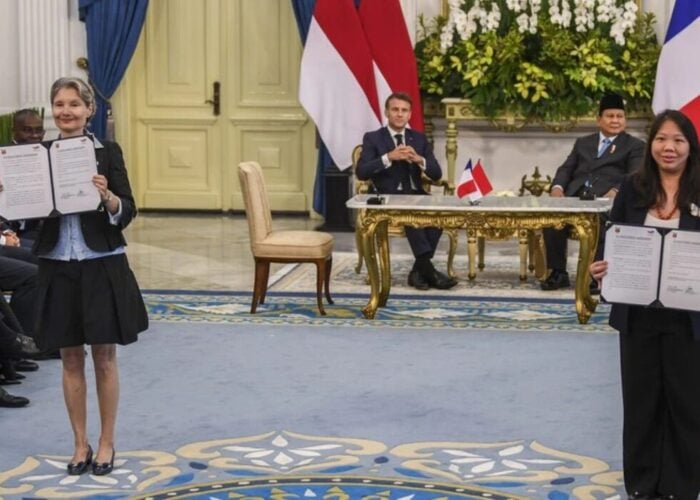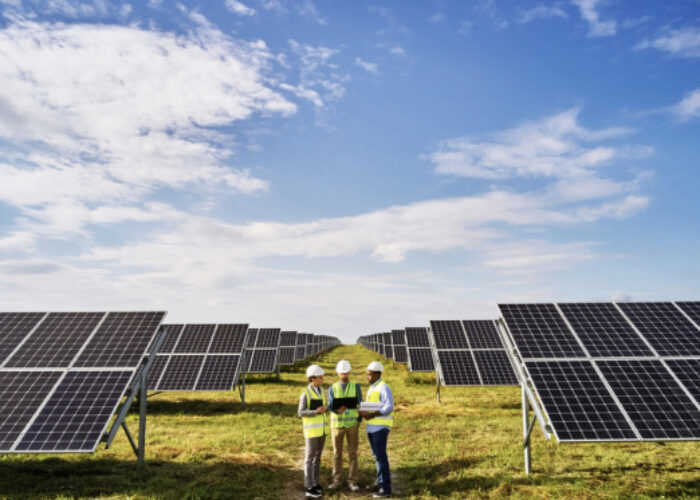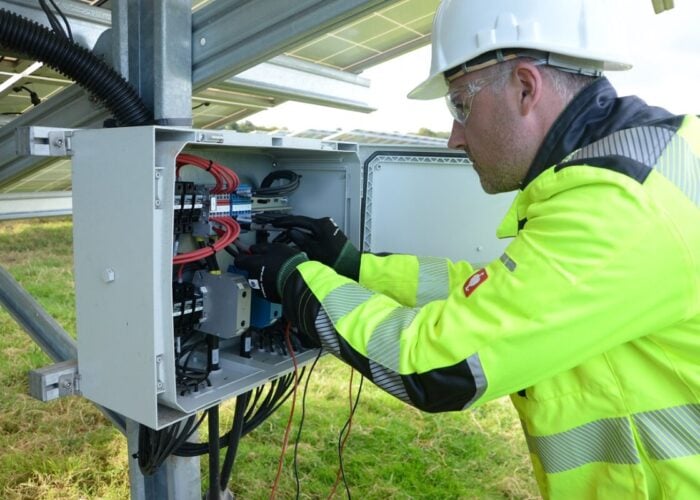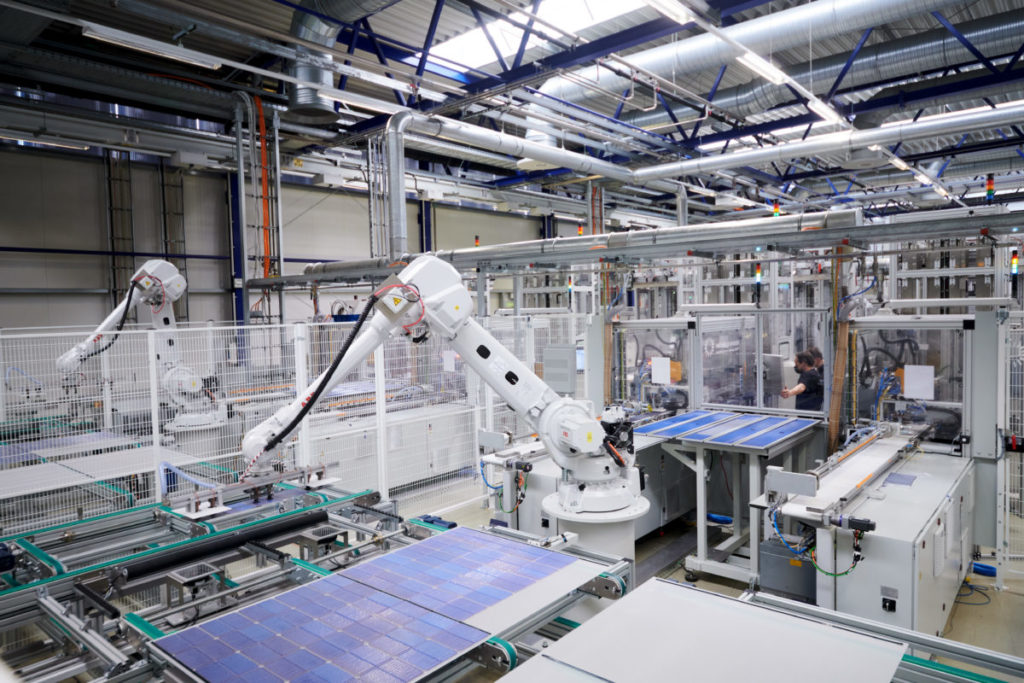
Multiple European cell and module manufacturers, start-ups and solar PV component suppliers have published an open letter via the European Solar Manufacturing Council (ESMC), urging the EU to take action to safeguard the European PV manufacturing industry threatened by “unsustainably low-priced PV modules” from Chinese module manufacturers.
In the open letter, the signatories said the prices of PV modules had dropped by over 35% to €0.15 (US$0.16) per watt. However, these companies had a “limited chance for selling the production in such circumstances”.
Unlock unlimited access for 12 whole months of distinctive global analysis
Photovoltaics International is now included.
- Regular insight and analysis of the industry’s biggest developments
- In-depth interviews with the industry’s leading figures
- Unlimited digital access to the PV Tech Power journal catalogue
- Unlimited digital access to the Photovoltaics International journal catalogue
- Access to more than 1,000 technical papers
- Discounts on Solar Media’s portfolio of events, in-person and virtual
Although the European solar companies appreciated the EU’s commitment to fostering a European solar PV manufacturing supply chain, the impact of the measures and initiatives launched by the EU are at risk due to “intentional and purposeful attack by Chinese PV manufacturers”. Substantial storage of Chinese PV modules, covering twice the entirety of Europe’s annual demand, is in European ports mainly in Rotterdam, the Netherlands.
Imports from China have continued to rise since the start of 2023 with an estimated 40GWdc of stored capacity, equivalent to the installed volume in 2022 across Europe. However, imports from China are expected to set a record at 120GW, surpassing the expected installations in 2023 of over 60GW.
The open letter also claimed that Chinese solar companies had adopted a “dumping stance” in the European market, offering European customers a series of two-year contracts with the price of €0.15 per watt. However, Chinese companies’ estimated production costs were about €0.2 per watt based on declared numbers.
Such offers were contingent on minimum yearly orders of 2MW and came with a stipulation of exclusivity too.
As a result, European PV module production plummeted from 9GW in 2022 to about 1GW in 2023. Additionally, European solar PV module manufacturers have over 500MW of produced modules in stock now as they could not sell the products at prices that could cover the manufacturing costs.
Therefore, European solar companies are demanding actions from the European Commission and member states of the EU, including immediate exclusion from the European market of solar modules produced with forced labour.
“We cannot compete with and will not turn a blind eye to modern slavery. Large volumes of unethically produced PV modules — originally bound for the US market but prevented from entering by the existing Uyghur Forced Labor Prevention Act (UFLPA) — are now being dumped in Europe which lack processes to stop modules manufactured with forced labour,” the statement read.
European solar companies also demand swift emergency acquisition of European PV manufacturers’ PV module inventories in response to the forced price decline caused by Chinese solar companies.
“These PV modules, for example, could be procured through the refinement of competitive bidding process within the Temporary Crisis and Transition Framework (TCTF) or elaborating the Ukraine Facility framework for Ukraine aid and rebuild,” the statement said.
Lastly, the solar businesses called for encouragement for European PV installers and project developers to incorporate a minimum share of European production along the entire PV value chain for European PV deployment, as this could secure a stable market for European manufacturers in the medium term.
The inclusion of non-financial criteria in PV auctions should also be included as a reward for the environmental and social benefits of European PV modules, which is a key tool for levelling the playing field with Chinese modules, according to the open letter.
ESMC added that if no measures are to be taken, European solar PV manufacturers will face two options, including continuing production shutdowns and facing bankruptcy, or seeking refuge in regions such as the US that support their PV industry.
For example, Norwegian solar ingot manufacturer NorSun signed an agreement with Canadian solar manufacturer Silfab Solar to expand ingot and wafer production facilities in the US.
| PV Tech publisher Solar Media will be organising the 11th annual edition of Large Scale Solar Europe in Lisbon, Portugal during 21-22 March. The event will explore the future solar markets of Portugal, Spain and Italy and with panels around securing faster grid connection, solar-wind hybrid projects and the integration of storage with solar PV among others. |

